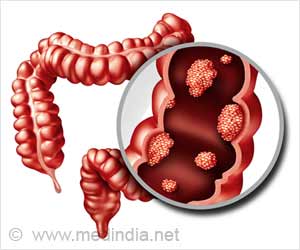In cases of patients with primary and secondary liver tumours undergoing chemotherapy, temporarily diverting the blood leaving could prolong their life.
In cases of patients with primary and secondary liver tumours undergoing chemotherapy, temporarily diverting the blood leaving could prolong their life. This hour-long procedure ensures massive doses of chemotherapy drugs to reach the liver and kill the cancer cells without poisoning the rest of the body.
The regime involves injecting the drug straight into the liver, while using catheters and balloons to divert the blood leaving it. This blood is then filtered to remove most of the drug.“The amount of drug getting to the tumour is hundreds of times more than usual,” says Richard Taney, president of Delcath Systems, the New York-based company developing the procedure. Patients are given seven times the normal dose of the chemotherapy drug melphalan, but because the drug is prevented from spreading throughout the body its concentration in the liver is far greater than if it had been injected into the circulation.
This increases the chances that tumours will be killed, even if they are too small to be detected individually.
In an early trial on 13 patients, tumours disappeared or shrank by more than half in 10 of the patients within five weeks of their being given the new treatment. They survived for an average of two years. Normally around 90 per cent of people with inoperable secondary liver tumours die within eight months of being diagnosed.
The results will be presented next month at the BioPartnering Europe symposium in London. Delcath Systems has already begun a larger trial in collaboration with a team led by James Pingpank of the US National Cancer Institute in Bethesda, Maryland.
The procedure uses catheters threaded through blood vessels in the thighs and neck, one of which delivers the drug into the hepatic artery, which supplies the liver. Meanwhile, the inferior vena cava, which normally drains the liver, is blocked by a pair of balloons.
Advertisement
Adam Markham, senior medical adviser to Cancer Research UK, says any improvements to treatments for cancer that has spread to the liver are welcome. But he cautions that none of the previous surgical attempts to “isolate” the liver during chemotherapy by clamping blood vessels have worked as well as was hoped. He also warns that even though there is no open surgery, the Delcath procedure might prove too much for very ill patients, and that there would be a risk that at such high concentrations the drug would damage healthy parts of the liver.
Advertisement
GAN /J











